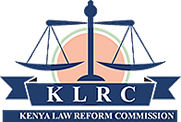(1) The Director of Public Prosecutions may be removed from office only on the grounds of--
(a) inability to perform the functions of office arising from mental or physical incapacity;
(b) non-compliance with Chapter Six;
(c) bankruptcy;
(d) incompetence; or
(e) gross misconduct or misbehaviour.
(2) A person desiring the removal of the Director of Public Prosecutions may present a petition to the Public Service Commission which, shall be in writing, setting out the alleged facts constituting the grounds for the removal of the Director.
(3) The Public Service Commission shall consider the petition and, if it is satisfied that it discloses the existence of a ground under clause (1), it shall send the petition to the President.
(4) On receipt and examination of the petition, the President shall, within fourteen days, suspend the Director of Public Prosecutions from office pending action by the President in accordance with clause (5) and shall, acting in accordance with the advice of the Public Service Commission, appoint a tribunal consisting of--
(a) four members from among persons who hold or have held office as a judge of a superior court, or who are qualified to be appointed as such;
(b) one advocate of at least fifteen years’ standing nominated by the statutory body responsible for the professional regulation of advocates; and
(c) two other persons with experience in public affairs.
(5) The tribunal shall inquire into the matter expeditiously and report on the facts and make recommendations to the President, who shall act in accordance with the recommendations of the tribunal.
(6) A Director of Public Prosecutions who is suspended from office under clause (4) shall be entitled to half of his or her remuneration until removed from, or reinstated in, office.
(7) A tribunal appointed under clause (4) shall elect a chairperson from among its members.
(8) A tribunal appointed under clause (4) shall be responsible for the regulation of its proceedings.
(9) The Director of Public Prosecutions may resign from office by giving notice, in writing, to the President.
